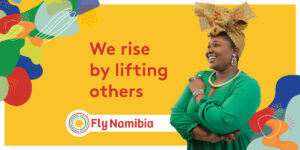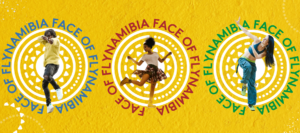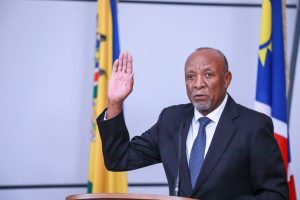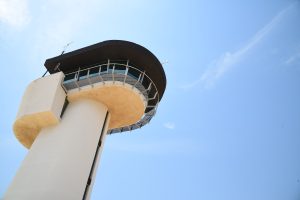
Purpose
Purpose fuels Passions and at FlyNamibia we are passionate about supporting Namibia and her people!
By Willie Olivier
Born on 3 August 1941, Hage Gottfried Geingob grew up on a farm south of Outjo and after completing his schooling at Outjo he enrolled at the Augustineum Teacher Training College at Okahandja in 1958. He was expelled two years later after he participated in a protest about the poor quality of education, but was readmitted and completed the course in 1961. He then took up a post as a teacher in Tsumeb, but resigned shortly afterwards as he detested the system of Bantu education.
The young Geingob joined SWAPO in 1962 and went into exile to what was then known as Bechuanaland (Botswana) in the same year. During his time in Bechuanaland, Geingob served as assistant SWAPO representative, before making his way to the United States of America. He was appointed as a petitioner to the United Nations in New York in 1964 and gained experience in international diplomacy while he campaigned for a free and independent Namibia with other petitioners.
Geingob was appointed as a political affairs officer at the Council of Namibia in 1972 and as the first director of the United Nations Institute for Namibia (UNIN) in Lusaka, Zambia, in 1975. At UNIN, which was established to educate and train Namibians in preparation for independence, his training as a teacher stood him in good stead.
After spending nearly three decades in exile, Geingob returned to Namibia on 18 June 1989. He was appointed as SWAPO’s director of elections and steered the party to election victory in the 1989 elections.
Following the elections, he was elected as the chair of the Constituent Assembly which was tasked to draw up the country’s constitution and determine a date for Namibia’s independence. Despite the distrust and ideological differences between SWAPO and the other political parties, he used his negotiation skills to produce Namibia’s constitution in a record 80 days. The constitution, which was adopted on 9 February 1990, has been hailed as one of the most progressive in the world.
When Geingob was appointed as Namibia’s first prime minister in 1990, he proved to be an able administrator. He held the position until 2002, when he fell out of favour with then President Sam Nujoma and took up the position of executive secretary of the Global Coalition for Africa in Washington and returned to Namibia in 2004.
Geingob returned to active politics when Namibia’s second President, Hifikepunye Pohamba, appointed him as Minister of Trade and Industry in 2008. He held the position until 2012 when he was promoted to Prime Minister, a position he held until 2015. In the November 2014 elections, Geingob received an overwhelming majority and was sworn in as the country’s third president on 21 March 2015. He again won the 2019 presidential vote, but with a much-reduced majority.
Geingob conceived the concept “The Namibian House” to promote the inclusivity of all Namibians and was the architect of the Harambee Prosperity Plan I (2016-2020) and Harambee Prosperity Plan II (2021 to 2025) which aimed to complement the government’s long-term national goals for prosperity.
As President, he promoted Namibia tirelessly as a safe investment country at numerous global international meetings and established the Namibia Investment Promotion and Development Board as an autonomous body in the Office of the President.
On the global stage, he proved to be an astute statesman and a skilful negotiator which earned him the respect of world leaders. Geingob was a champion of press freedom and repeatedly reiterated his personal and his administration’s commitment to press freedom.
He was committed to fighting corruption and dealt decisively with two ministers implicated in the Fishrot saga, as well as other ministers involved in corruption. He has been credited with being instrumental in the creation of the Anti-Corruption Commission and as recently as December 2023, he called on Namibians to ensure that the country is corruption-free.
His presidency was not without challenges, though. The country faced its worst drought in human memory between 2016 and 2019, resulting in widespread food insecurity. He also had to deal with the devastating effect of the Covid-19 pandemic and global economic uncertainties, as well as bitter succession battles within the SWAPO Party.
Despite all these challenges, Geingob worked tirelessly towards delivering prosperity for all Namibians. He will also be remembered for his infectious chuckle, off-the-cuff comments and his dancing skills whenever the occasion arose. He was an avid sports supporter and served as patron of the Namibia Football Association and the Namibia Rugby Union which renamed the South West Stadium to the Hage Geingob Stadium. His name will also continue to be remembered by football fans when the annual Dr Hage Geingob Cup is played.

Purpose fuels Passions and at FlyNamibia we are passionate about supporting Namibia and her people!

The search is on for the 2024 Face of FlyNamibia winner!

Testament to the resilience and forward-looking nature of Namibia’s political landscape, Namibia experienced a seamless and dignified transfer of power, underscoring the country’s commitment to stability and governance. This follows the sad and unfortunate passing of His Excellency President Hage Gottfried Geingob.

We meet the unsung heroes of the Namibian skies – Air traffic controllers, who play a crucial role in ensuring the safe and efficient movement of aircraft within controlled airspace and on the ground.